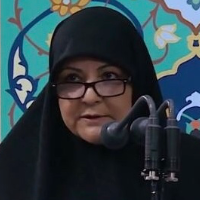Post-Divorce Self-Redefining and Identity Building in Women
Author(s):
Abstract:
Despites the many efforts for controlling and reducing divorce in Iran، the rates are growing and the number of families who have experienced a divorce is increasingly rising. The ‘post-divorce life’، an matter of trivial interest in the past، has now turned into a serious issue for family sociologists. Research findings suggest that divorce often has more negative consequences for women، one of which is identity challenges. The present study employed a qualitative approach and used semi-structured in-depth interviews with 18 women to investigate women’s post-divorce identity challenges and how they redefined ‘self’ and build ‘identity’ after divorce. “Self” is a key concept in theorizing one’s being and nature، and gives the person the ability to portray her identity. The results showed that، on the event of a divorce، many changes occurred to the image and the understanding that a women had from her inner and outer self. The results also suggested that the main areas in which the women had redefined their identity were new roles، new lifestyles، new relationships، and ontological and psychological safety. Moreover، background variables including present age، age at divorce، social class، occupational status، length of marriage، having or not having children، and a traditional or modern set of habitus influenced how women dealt with post-divorce identity changes and self-redefining.
Keywords:
Language:
Persian
Published:
Pazuhesname - ye Zanan, Volume:4 Issue: 1, 2013
Pages:
111 to 138
https://magiran.com/p1275279
مقالات دیگری از این نویسنده (گان)
-
"In the Presence of the Other": Mobile Phone Technology and Insecurity in Marital Life; An Iranian Narrative Unfolding Gender Differences
Elaheh Shabani Afarani *, Masoud Kianpour,
Journal of Cyberspace Studies, Summer-Autumn 2024 -
Models of political education in women politicians and its impact on political competition at the macro levels (the government board and the Islamic Council).
Seyed Ameneh Mir-Khoshkhoo *, Soheila Sadeghi Fasaei
Journal of Political science Association,



